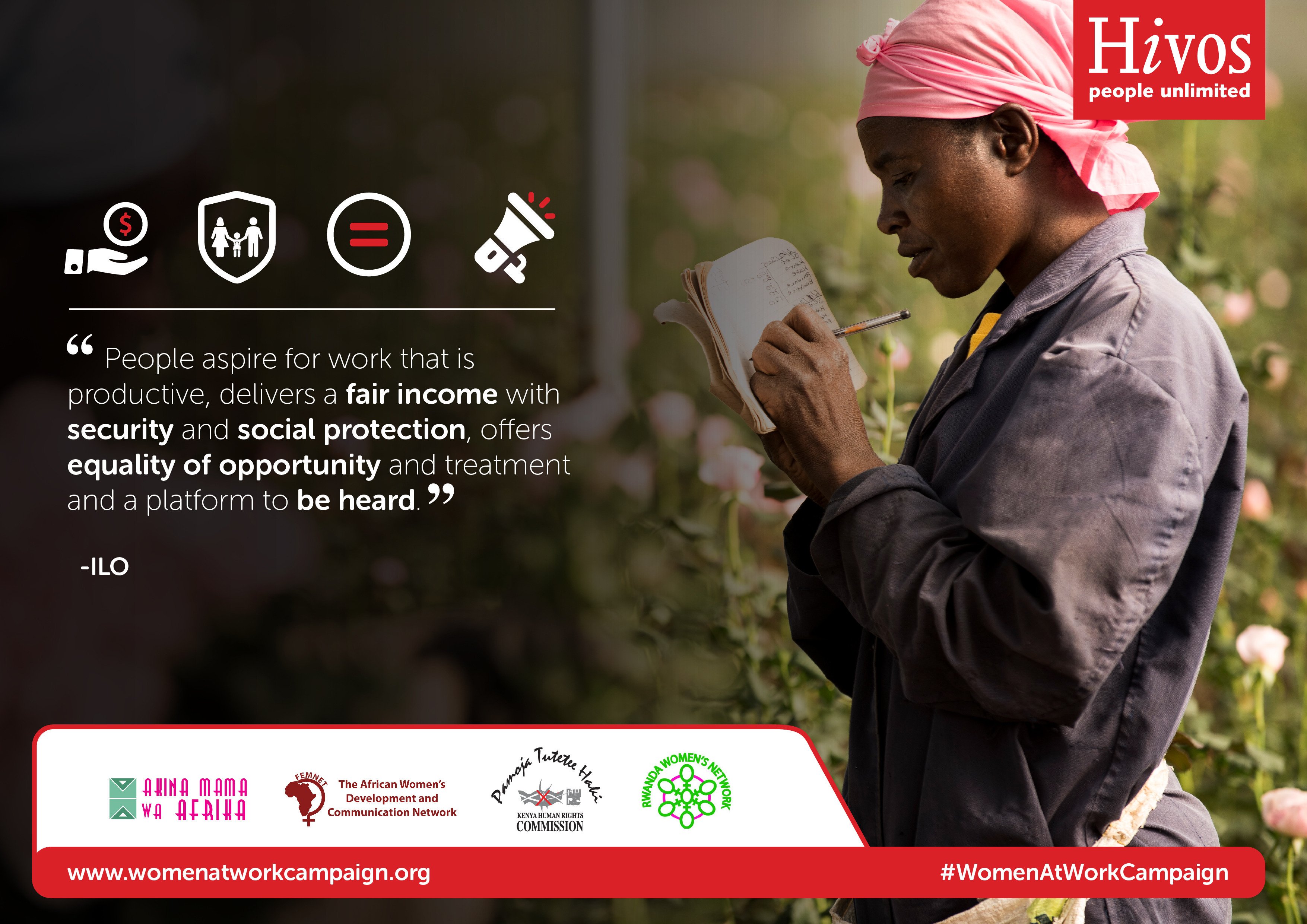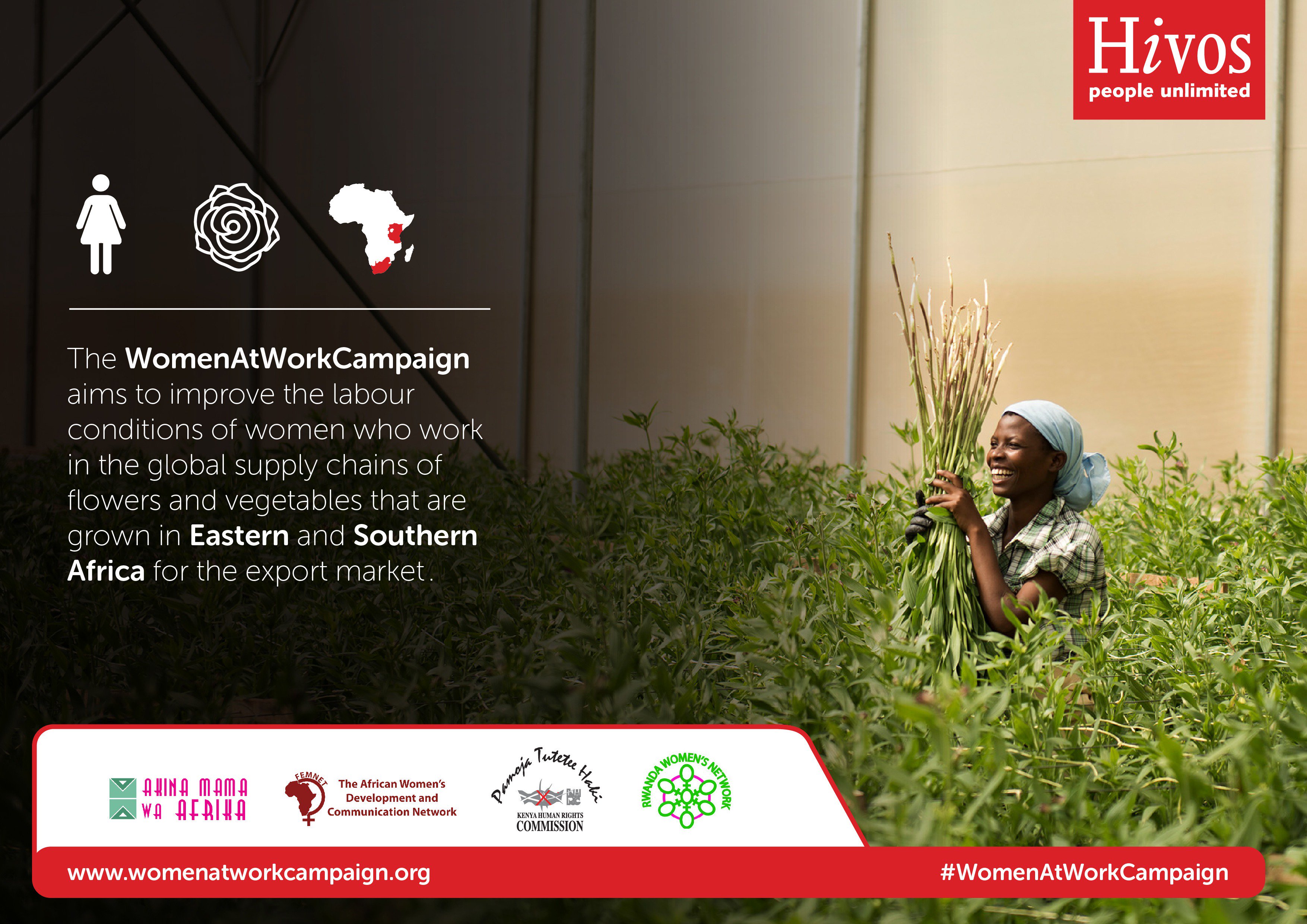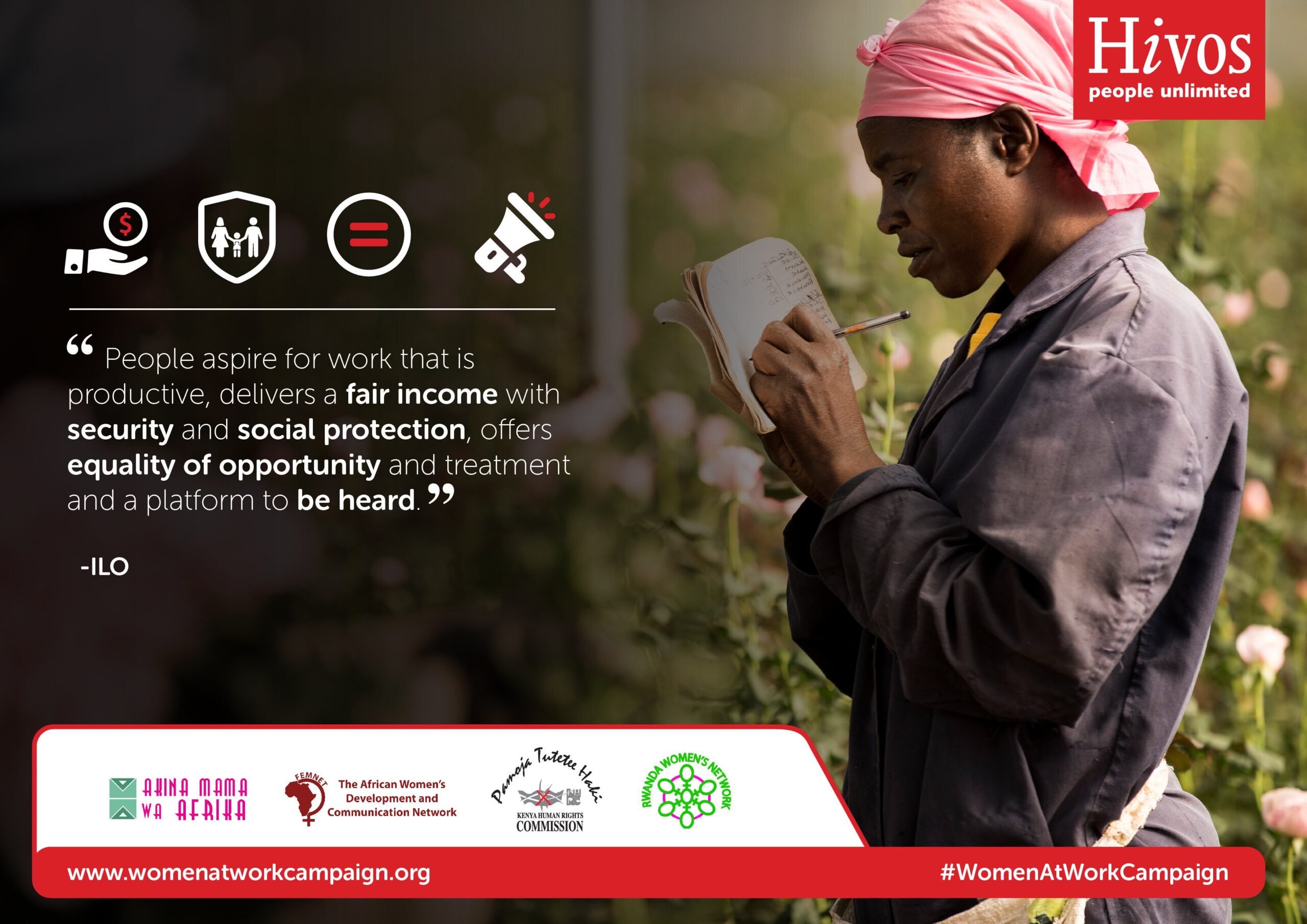By Kalevera E Imungu, Programme Associate Women@Work
The #MeToo movement has become synonymous with breaking power structures and shedding light on sexual harassment. Momentum created by this campaign was and continues to be unprecedented, but for lasting change to occur, there needs to be lasting structures, locally and internationally that recognize and address sexual harassment comprehensively.
It could be argued that we are not at a shortage of conventions, laws and policies that seek to protect the rights of workers against workplace and women’s rights. But while this is true to some degree, enforcement and adherence remains an issue. The eight Eastern and Southern African states (Kenya, Uganda, Ethiopia, Tanzania, Rwanda, Malawi, Zambia and Zimbabwe) covered under the Hivos Women@Work Campaign also have committed to and ratified several regional and international documents addressing women’s rights and the rights’ of workers. These include key ILO conventions and rights instruments such as the African Charter on Human and Peoples’ Rights (or Banjul Charter), the Convention on the Elimination of All Forms of Discrimination Against Women (CEDAW) and the International Covenant on Economic, Social and Cultural Rights (ICESCR).

To this end, states are required to report against these instruments and establish domestic policies that align with the minimum requirements of these instruments. But this does not always happen. Civil society and citizens continue to hold to account their governments, pressing for proper and accurate reporting against agreed conventions and rights instruments in addition to taking tangible steps to operationalize the requirements therein. The journey to achieving true gender equality and gender aware policies at work leapt forward with the recent overwhelming adoption of the ILO Convention and Recommendation on ending gender based violence at the workplace; the first-ever global Convention and Recommendation to “Combat Violence and Harassment at Work”. However, the Convention will only enter into force 12 months after two states have ratified it, so then the journey towards global ratification of the Convention begins. Similarly, several important conventions that cater to the rights of women workers are yet to be ratified by several African countries.
The ILO Maternity Protection Convention (C183) of 2000 has not been ratified by any of the 8 countries though protects women, lactating and pregnant mothers from unlawful and discriminatory practices during employment and when seeking employment. The Convention also includes provisions for breastfeeding mothers and stipulates remunerations for lactating mothers.
Other key conventions that are yet to be ratified fully across the countries include the ILO Minimum Wage Fixing Convention (C131), and ILO Occupational Health and Safety Convention (C155). Though national laws and policies may address some of the issues underlined within these key ILO conventions, ratification creates a binding agreement and compels the state to create the necessary legislation to give domestic effect to that treaty. Reluctance to ratify is in many ways a reluctance to fully enforce.
Beyond ratification is enforcement that makes sure that citizens’ lived realities reflect the aspirational goals set within the treaty/convention. Women workers in Zambia continue to face inflexible and long hours of work regardless of family and other responsibilities, denial of leave and indiscriminate dismissals. Labor market segregation is high, women being concentrated in low-skilled, low wage sectors and sometimes being paid as little as half of what male workers make for the same job, despite the country having ratified the ILO Equal Remuneration Convention (C100). There appears to be little political goodwill to address these shortcomings, evidenced by the gross under-resourcing of the gender machinery in the country.
In Uganda, workplace sexual harassment continues to be prevalent and despite government and employer resistance, women’s rights organizations and labor rights collectives in the country are making strides to change this reality. Additionally, the Ugandan government has not kept up with its reporting obligations to the committee on CEDAW and the Banjul Charter and as such close monitoring of the situation in the country as far as women’s rights is concerned may not always be reliable.
Lack of state compliance to reporting obligations is not a unique problem. Several African countries and beyond may often not submit reports to the committees of the various treaties. This often leads to a lagging behind of state efforts to enforce these treaties and a misrepresentation of the trues state of affairs. None of the eight countries under the project appear to be in full reporting compliance with both ICESCR and the Banjul Charter and this complicates the task to monitor progress.
There are also key steps towards progress being made as Uganda is currently in the final stages of signing the Minimum Wage Bill into an act of parliament in addition to the sexual offences act. Several flower farms in Uganda and Kenya have adopted a Model Sexual Harassment policy and in Southern Africa, the Tea Association of Malawi has developed a new Gender and Sexual Harassment policy; these are key results from non-state actor interventions.
The post #MeToo era is marked with key milestones such as the ILO Convention on ending gender based violence at work and an increased vigor to address sexual harassment. It is key that we take advantage of this momentum to continue to challenge our state authorities and policy makers in their efforts to entrench and enforce fair, engendered labor practices in national policy. The work of frontrunners, civil society and most importantly, ordinary people such as Rita Marque Mbatha – who defied the odds in a 16 year case against sexual harassment – continues to fuel progressive change. Hivos is proud to facilitate this change with her partners and looks ahead to a world free of sexual harassment and unfair labor practices.





